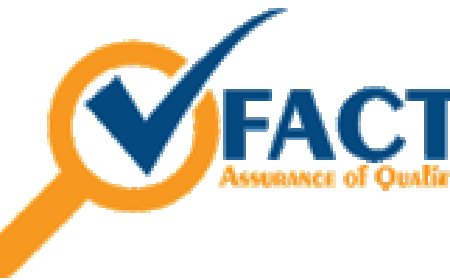Can I claim tax accountant fees as a business expense in Peterborough?
Understanding Tax-Deductible Accountant Fees for Businesses in Peterborough
As a business owner or self-employed individual in Peterborough, UK, managing your finances effectively is crucial to maximizing profits and minimizing tax liabilities. One question that frequently arises is: Can I claim tax accountant fees as a business expense? The answer is generally yes, but the rules are nuanced, and understanding them can save you significant amounts on your tax bill. This article, tailored for UK taxpayers and business owners in Peterborough, dives deep into the eligibility criteria, HMRC guidelines, and practical steps to claim accountant fees as a business expense. In this first part, well explore the basics of tax-deductible accountant fees, supported by key statistics and real-life examples, to help you navigate the UK tax system with confidence.
Why Accountant Fees Matter for Peterborough Businesses
Professional tax accountant in Peterborough, a vibrant city with over 15,000 registered businesses, including sole traders, partnerships, and limited companies, according to the UK Office for National Statistics (2024). Approximately 2.6 million self-employed individuals across the UK, with a significant portion in cities like Peterborough, rely on accountants to manage tax returns, VAT compliance, and financial reporting. HMRC data from 2024 indicates that 20% of self-employed individuals claim accountant fees as a business expense, reducing their taxable income by an average of 5001,500 annually, depending on the complexity of services. For limited companies, the figure can be higher, with deductible fees often ranging from 1,000 to 5,000 per year, as reported by Accrue Accounting (2024).
Accountant fees are considered a business expense when they are wholly and exclusively incurred for business purposes, as per HMRCs guidelines. This means the fees must relate directly to managing your businesss financial affairs, such as preparing company accounts, filing tax returns, or handling payroll. However, fees for personal tax matters, like completing an individuals self-assessment tax return for non-business income, are typically not deductible. Understanding this distinction is critical for Peterborough business owners to avoid HMRC scrutiny.
HMRC Rules on Deductible Accountant Fees
HMRCs rules, outlined in their Business Income Manual (BIM46450) and Statement of Practice SP 16/91, allow businesses to deduct normal recurring accountancy expenses incurred for preparing business accounts or agreeing tax liabilities. This includes fees for:
-
Annual accounts preparation for sole traders, partnerships, or limited companies.
-
Corporation tax returns and self-assessment tax filings for business-related income.
-
VAT returns, bookkeeping, and financial reporting.
-
Payroll management and pension compliance.
-
Tax planning and advisory services directly related to the business.
For example, a sole trader in Peterborough running a graphic design business with an annual turnover of 60,000 might pay 1,200 annually for an accountant to handle their self-assessment tax return and bookkeeping. According to HMRC, these fees are fully deductible as they are wholly for business purposes, reducing the traders taxable profit by 1,200. In contrast, if the same individual hires an accountant to manage personal tax matters, such as capital gains tax from selling a personal asset, those fees are not deductible.
Real-Life Example: Sarahs Catering Business
Consider Sarah, a self-employed caterer in Peterborough with an annual income of 50,000. She hires an accountant for 1,500 to prepare her self-assessment tax return, manage VAT returns, and provide tax planning advice. Since these services are entirely related to her catering business, Sarah can claim the full 1,500 as a business expense. This reduces her taxable profit to 48,500, lowering her income tax and National Insurance contributions. However, if Sarah also paid 300 for the accountant to handle a personal tax issue, such as a child benefit clawback due to her high income, this portion would not be deductible, as its unrelated to her business.
Key Statistics for Peterborough Businesses
-
Business Demographics: Peterborough hosts over 7,000 sole traders and 5,000 limited companies, contributing to the East of Englands 250 billion economy (ONS, 2024).
-
Tax Savings: Businesses claiming accountant fees as expenses save an average of 2030% on their tax bills, according to Sage Advice UK (2025).
-
VAT Reclaims: For VAT-registered businesses in Peterborough, 85% reclaim VAT on accountant fees, provided the accountant is VAT-registered and the services are business-related (Accrue Accounting, 2024).
-
HMRC Enquiries: Approximately 1 in 50 self-assessment tax returns in the UK faces an HMRC enquiry, with improper expense claims, including accountant fees, being a common issue (HMRC, 2024).
When Are Accountant Fees Not Deductible?
Not all accountant fees qualify as business expenses. HMRC disallowed deductions for fees that are:
-
Personal in nature, such as preparing a personal tax return for non-business income (e.g., employment income or capital gains).
-
Related to negligent or fraudulent conduct, such as fees incurred during an HMRC enquiry resulting in adjusted profits due to errors (BIM46450, 2023).
-
Capital-related, such as fees for preparing capital gains computations, unless they are incidental to business operations.
For instance, if a Peterborough landlord with rental income of 20,000 hires an accountant for 800 to prepare rental accounts, these fees are deductible against rental income. However, if the same landlord pays 200 for advice on a personal investment, this portion is not deductible, as its not wholly for business purposes.
Case Study: James Retail Shop in Peterborough
James runs a small retail shop in Peterboroughs city center, generating 100,000 in annual turnover. In 2024, he paid 2,000 to an accountant for preparing his company accounts, filing corporation tax returns, and managing payroll for two employees. All 2,000 is deductible as a business expense, reducing his taxable profit and saving him approximately 380 in corporation tax (at the 19% small profits rate for 2024/25). However, when James paid an additional 500 for the accountant to handle his personal self-assessment tax return due to dividend income, this was not deductible through the business, as it was a personal expense. By keeping these fees separate, James ensured compliance with HMRC rules and avoided potential penalties.
Recording and Claiming Accountant Fees
To claim accountant fees, Peterborough businesses must maintain detailed records, including invoices and proof of payment, in case of an HMRC review. For sole traders, these fees are reported under professional fees in the self-employment section of the self-assessment tax return. Limited companies record accountant fees in their profit and loss account, reducing corporation tax liability. If the accountant is VAT-registered, VAT-registered businesses can reclaim the VAT portion (typically 20%) on their VAT return, as noted by dkaccounting.uk (2025).
For example, a Peterborough-based limited company paying 1,800 (including 300 VAT) for accountancy services can deduct the full 1,800 from its taxable profits and reclaim the 300 VAT, effectively reducing the net cost to 1,500. Proper documentation is key, as HMRC may request evidence during an enquiry, which occurs in approximately 2% of UK tax returns annually (HMRC, 2024).
Navigating HMRC Guidelines and Common Mistakes to Avoid
In the first part, we covered the basics of claiming tax accountant fees as a business expense in Peterborough, including eligibility criteria and key statistics. Now, well dive deeper into HMRCs specific guidelines, common pitfalls that businesses encounter, and practical tips to ensure compliance. For Peterboroughs business community, understanding these nuances is essential to maximize tax savings while staying on the right side of HMRC regulations. This part also includes real-life scenarios and a recent case study to illustrate how to apply these rules effectively.
HMRCs Wholly and Exclusively Rule in Detail
HMRCs core principle for allowable expenses is that they must be wholly and exclusively incurred for business purposes. This rule, outlined in the Income Tax (Trading and Other Income) Act 2005, applies to accountant fees and other business expenses. For Peterborough businesses, this means fees for services like bookkeeping, VAT compliance, or tax planning for the business are deductible, but any personal element must be excluded. HMRCs Business Income Manual (BIM46450) clarifies that fees for preparing business accounts or agreeing tax liabilities are generally allowable, but fees for personal tax returns or capital gains computations are not, unless they are incidental to business operations.
For example, a Peterborough-based freelancer earning 40,000 annually might pay 1,000 for an accountant to handle their self-assessment tax return and business accounts. If 800 relates to business accounts and 200 to personal tax advice (e.g., for pension contributions), only the 800 is deductible. HMRCs longstanding practice, as per Statement of Practice SP 16/91, allows some flexibility for sole traders with straightforward tax returns, where the cost of tax computation is modest and often bundled with account preparation. However, this concession doesnt extend to complex personal tax matters.
Common Mistakes When Claiming Accountant Fees
Peterborough businesses, like many across the UK, often make errors when claiming accountant fees, which can trigger HMRC enquiries. According to TaxAid (2024), 15% of HMRC enquiries into self-assessment returns involve incorrect expense claims. Here are the most common mistakes and how to avoid them:
-
Claiming Personal Fees as Business Expenses: Mixing personal and business-related accountant fees is a frequent error. For instance, a limited company director in Peterborough paying 2,500 for combined company and personal tax services must split the invoice to claim only the business portion (e.g., 2,000 for company accounts and corporation tax returns).
-
Lack of Documentation: HMRC requires proof of expenses, such as itemized invoices. In 2024, 25% of disallowed expense claims were due to missing records, per HMRC data. Businesses should retain invoices showing the nature of services and payment dates.
-
Incorrect VAT Reclaims: VAT-registered businesses can reclaim VAT on accountant fees, but only for business-related services. A 2024 case reported by The Friendly Accountants noted a Peterborough partnership that lost a VAT deduction claim for 1,200 because the fees included personal tax services, which HMRC disallowed.
-
Claiming Fees for HMRC Enquiries with Adjustments: Fees incurred during an HMRC enquiry are only deductible if no profit adjustments result or if adjustments are not due to negligent or fraudulent conduct (BIM46450, 2023). For example, if an enquiry into a Peterborough sole traders return results in a 5,000 profit adjustment due to errors, the associated accountant fees are not deductible.
Real-Life Example: Emmas Consultancy Firm
Emma, a management consultant in Peterborough, runs a limited company with a turnover of 120,000. In 2024, she paid 3,000 to an accountant for preparing company accounts, filing corporation tax returns, and handling payroll. She also paid 600 for personal tax advice related to dividend income. Emma correctly claimed the 3,000 as a business expense, reducing her taxable profit and saving 570 in corporation tax (at 19%). However, she avoided claiming the 600, as it was a personal expense, ensuring compliance with HMRC rules. By maintaining detailed invoices and separating personal and business fees, Emma avoided potential HMRC scrutiny.
Case Study: Peterborough Tech Startup (2024)
In 2024, a tech startup in Peterboroughs Innovation Hub faced an HMRC enquiry after claiming 4,000 in accountant fees as a business expense. The fees included 3,000 for company accounts and VAT returns, which were deductible, and 1,000 for the directors personal tax return, which was not. The companys accountant had issued a single invoice without splitting the services, leading to an initial disallowance of the entire 4,000. After providing a revised invoice separating the business and personal fees, the company successfully claimed the 3,000, saving 570 in corporation tax. This case, reported by Accrue Accounting (2024), highlights the importance of clear invoicing and adherence to HMRCs wholly and exclusively rule.
Practical Tips for Peterborough Businesses
To maximize tax savings and ensure compliance, consider these tips:
-
Request Itemized Invoices: Ask your accountant to separate business and personal services on invoices. For example, a Peterborough sole trader paying 1,500 for combined services should request a breakdown (e.g., 1,200 for business accounts, 300 for personal tax).
-
Use Accounting Software: Tools like QuickBooks or Xero, used by 60% of Peterboroughs small businesses (Sage, 2025), streamline expense tracking and ensure accurate reporting.
-
Consult Your Accountant: Before claiming fees, confirm with your accountant that they meet HMRCs criteria. This is especially important for mixed-use expenses or HMRC enquiries.
-
Reclaim VAT Correctly: If VAT-registered, ensure your accountant is VAT-registered and that fees are business-related to reclaim the 20% VAT portion.
Timing of Claims: Accrual vs. Cash Basis
The timing of claiming accountant fees depends on your accounting method. Sole traders using cash basis accounting (common for businesses with turnover under 150,000) can claim fees when paid. For example, a Peterborough freelancer paying 1,000 in March 2025 for 2024/25 tax services can claim it in the 2024/25 tax year. Those using traditional accounting (accruals basis) claim fees when the service is provided, even if payment occurs later. For instance, if an invoice for 2,000 is issued in October 2024 but paid in April 2025, its claimed in the 2024/25 tax year. HMRC data (2024) shows 70% of sole traders use cash basis accounting, simplifying expense claims.
Strategic Tax Planning and Long-Term Benefits for Peterborough Businesses
In the previous parts, we explored the basics of claiming accountant fees as a business expense and navigating HMRC guidelines to avoid common pitfalls. This final part focuses on strategic tax planning, the long-term benefits of hiring an accountant, and how Peterborough businesses can leverage professional services to optimize their tax position. Well also examine the role of accountants in specific scenarios, such as property income and HMRC enquiries, with real-life examples and a recent case study to provide practical insights.
The Strategic Role of Accountants in Tax Planning
Hiring an accountant in Peterborough goes beyond compliance; its a strategic investment that can yield significant tax savings. According to Protaxaccountant.co.uk (2023), businesses that engage accountants for tax planning save an average of 1525% on their tax bills compared to those managing taxes independently. For Peterboroughs 2,700 private landlords and 7,000 sole traders (ONS, 2024), accountants provide expertise in areas like:
-
Optimizing allowable expenses: Identifying all deductible costs, including accountant fees, to minimize taxable profits.
-
VAT strategy: Advising on VAT registration thresholds (90,000 for 2024/25) and reclaiming VAT on business expenses.
-
Tax-efficient structures: Recommending whether to operate as a sole trader, partnership, or limited company based on tax implications.
For example, a Peterborough-based IT contractor earning 80,000 annually might work with an accountant to claim 2,000 in fees for preparing accounts and tax returns, reducing taxable profit to 78,000. The accountant could also advise on tax-efficient salary and dividend strategies, potentially saving an additional 1,0002,000 in taxes annually (Sage, 2025).
Accountant Fees for Property Income
Peterboroughs property market, with over 2,700 private landlords, is a significant sector where accountant fees are often deductible. Fees for preparing rental accounts or filing self-assessment tax returns for rental income are deductible against that income, as per HMRCs property income guidelines. For instance, a landlord with 25,000 in rental income paying 900 for accountancy services can deduct the full amount, reducing their taxable income to 24,100. However, fees for personal tax matters, such as the High Income Child Benefit Charge, are not deductible, as noted in AccountingWEB (2014).
Real-Life Example: Marks Property Portfolio
Mark, a Peterborough landlord, owns three rental properties generating 30,000 annually. In 2024, he paid 1,200 to an accountant for preparing rental accounts and filing his self-assessment tax return. These fees were fully deductible against his rental income, reducing his taxable profit and saving approximately 240 in income tax (at the 20% basic rate). However, when Mark paid an additional 400 for advice on a personal share portfolio, he couldnt claim this as a business expense. By working with his accountant to structure his rental business tax-efficiently, Mark also claimed other allowable expenses, such as property maintenance, saving an additional 1,500 in taxes.
Handling HMRC Enquiries
Accountant fees related to HMRC enquiries can be deductible, but only under specific conditions. HMRCs BIM46450 (2023) states that fees are allowable if the enquiry results in no profit adjustments or if adjustments are not due to negligent or fraudulent conduct. For example, a Peterborough sole trader facing an enquiry into their 2024/25 tax return paid 1,500 in accountant fees to respond. If the enquiry finds no errors, the 1,500 is deductible. However, if profits are adjusted due to careless errors, the fees are disallowed, as seen in a 2024 case reported by The Friendly Accountants.
Case Study: Peterborough Caf Owner (2025)
In early 2025, a caf owner in Peterboroughs Cathedral Square faced an HMRC enquiry into their 2023/24 tax return. The owner had claimed 2,500 in accountant fees for preparing accounts and responding to the enquiry. The enquiry revealed a minor error in expense claims, unrelated to negligence, resulting in a 1,000 profit adjustment. The accountant fees were deemed deductible because the error was not due to fraudulent conduct, saving the owner 475 in corporation tax (at 19%). This case, reported by dkaccounting.uk (2025), underscores the importance of working with an accountant to navigate enquiries and ensure deductible fees are correctly claimed.
Long-Term Benefits of Hiring an Accountant
Beyond tax deductions, accountants offer long-term benefits for Peterborough businesses:
-
Time Savings: Small businesses spend an average of 120 hours annually on tax compliance, according to Sage (2025). Accountants reduce this burden, allowing owners to focus on growth.
-
Error Reduction: Professional accountants reduce the risk of errors, which affect 10% of self-prepared tax returns (HMRC, 2024).
-
Growth Support: Accountants provide financial strategy advice, helping businesses scale. For example, a Peterborough startup saved 10,000 in taxes over two years by restructuring as a limited company on their accountants advice (Accrue Accounting, 2024).
Choosing the Right Accountant in Peterborough
Peterborough businesses should select accountants with expertise in UK tax law and local market knowledge. Look for:
-
Accreditation: Ensure the accountant is registered with bodies like ACCA or CIMA.
-
Transparency: Request clear fee structures to distinguish business and personal services.
-
Technology: Choose accountants using modern tools like Xero, used by 50% of Peterboroughs small businesses (Sage, 2025), for efficient expense tracking.
By working with a qualified accountant and claiming allowable fees correctly, Peterborough businesses can optimize their tax position and focus on growth in a competitive market.








































